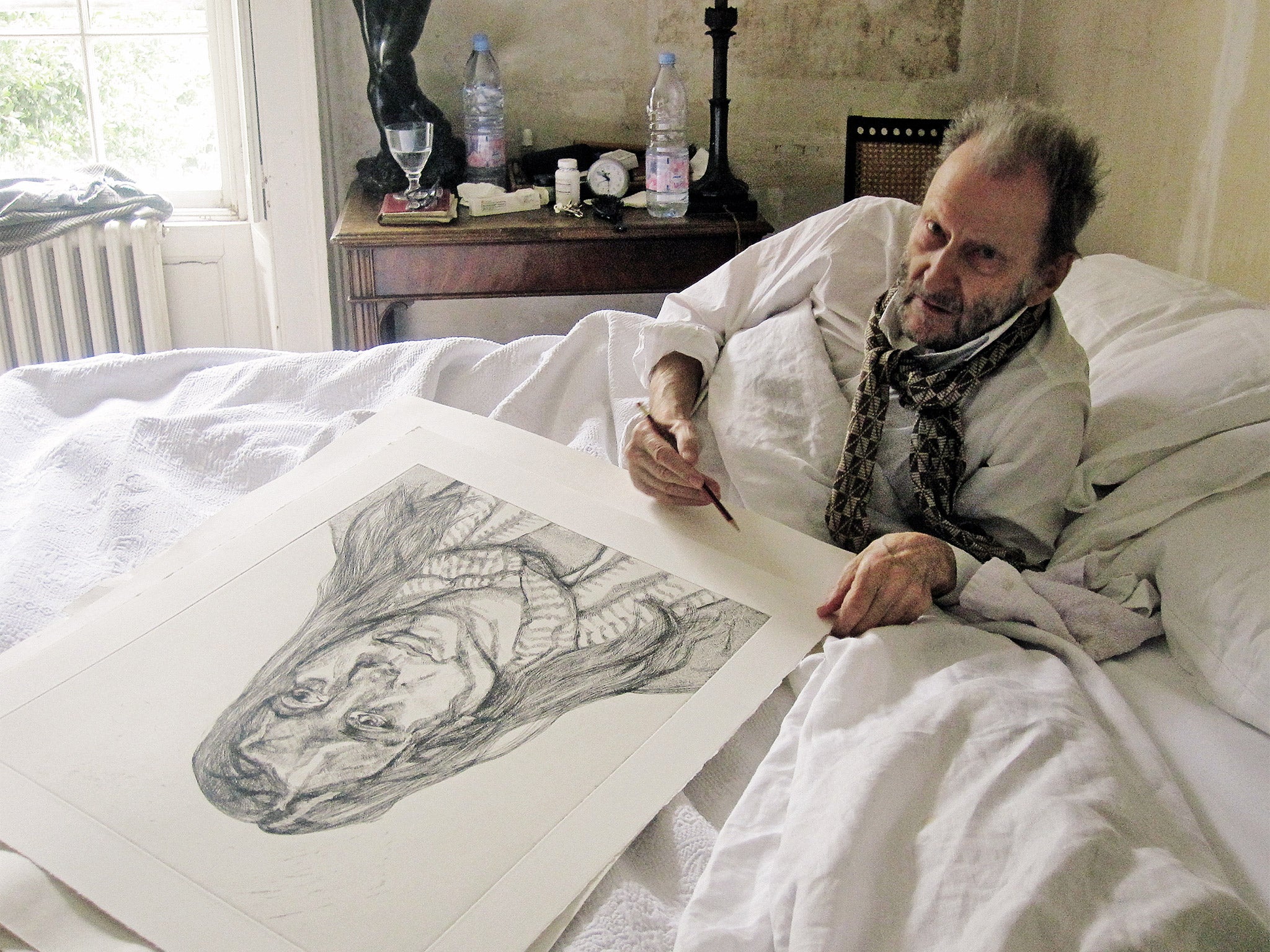Lucian Freud's son fails in High Court battle over artist's £42m secret trust
The painter, who had 14 children, left none of them any money

Your support helps us to tell the story
From reproductive rights to climate change to Big Tech, The Independent is on the ground when the story is developing. Whether it's investigating the financials of Elon Musk's pro-Trump PAC or producing our latest documentary, 'The A Word', which shines a light on the American women fighting for reproductive rights, we know how important it is to parse out the facts from the messaging.
At such a critical moment in US history, we need reporters on the ground. Your donation allows us to keep sending journalists to speak to both sides of the story.
The Independent is trusted by Americans across the entire political spectrum. And unlike many other quality news outlets, we choose not to lock Americans out of our reporting and analysis with paywalls. We believe quality journalism should be available to everyone, paid for by those who can afford it.
Your support makes all the difference.One of Lucian Freud’s children has failed in a High Court bid to wrestle control over a secret trust worth £42m left on the artist’s death.
The painter, who had 14 children, left none of them any money. His fortune was worth £96 million, and his west London house and a sum of £2.5 million were left to his assistant David Dawson.
The rest of the estate after other legacies and tax — which was about £42 million — was left to a secret trust run by Diana Rawstron, a solicitor, and Rose Pearce, one of Freud’s daughters.
Freud’s obsessive secrecy ensured that only two people would know the destination of his fortune.
His son Paul Freud, 55, also an artist, challenged the legality of the arrangement in the High Court.
He claimed that that part of the will would be legally invalid if Lucian Freud did not leave specific instructions to the trustees, which would mean the artist died intestate with regard to the £42 million. The money would then have to be divided between his relatives.
However Rawstron, Lucian’s solicitor for 25 years, and Pearce asked for a legal declaration that a provision of the 2006 will made them absolutely entitled to Freud's residuary estate.
Giving his ruling in London, Deputy Judge Richard Spearman concluded that the interpretation put forward by Ms Rawstron and Ms Pearce was to be preferred, and therefore the executrice's claim was successful, in the light of the words used by Lucian Freud in his will and the will's overall purpose.
Spearman said that in his long and successful life, Freud achieved international recognition as an outstanding painter and draughtsman and also lived a very full private life.
He added that, although at one time disputed by Ms Rawstron and Ms Pearce, it was accepted, at least for these proceedings, that the defendant, Paul Freud, was another of the artist's children, who numbered “at least 14”. Paul Freud was one of four children from the artist’s relationship with the artist Katherine McAdam.
Ms Rawstron and Ms Pearce contended that the gift of residue was subject to a trust imposed by Freud but they refused to disclose its terms.
The judge said: “Indeed, one of their purposes in taking the course that they have adopted in these proceedings is to avoid revealing the terms of that trust to the defendant, on the basis this would go against Lucian Freud's wishes. However they have informed the defendant that he is not a beneficiary of the trust.
“The defendant's case is that, on a proper construction of the will, Lucian Freud's residuary estate was not given to the claimants for their absolute benefit, but instead was given to them to hold on trusts which are not set out in the will. On that basis, any trust imposed on the residuary estate can only have been a half secret trust.”
He added that, because of the different requirements for creation of a valid half secret trust in comparison to a fully secret trust, Paul Freud would then wish to explore whether any valid half secret trust was created or whether there was an intestacy of the residue - which would mean he would be entitled to a share of it.
But, if Ms Rawstron and Ms Pearce were right, his only claim for provision from the estate arose under the Inheritance (Provision for Family and Dependants) Act 1975, under which a relative can make a claim if an individual has not made proper provision for them in a will.
Ultimately the judge sided with the case put forward by Ms Rawstron and Ms Pearce, who sought a ruling that they were “both absolutely entitled” to the residue of Freud’s estate.
Join our commenting forum
Join thought-provoking conversations, follow other Independent readers and see their replies
Comments